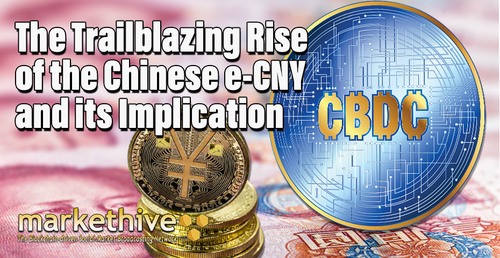
Emotional Whirlwind: China's Real Estate Saga Casts a Tentative Mood Over Financial Markets

China's real estate market has become a focal point of global attention, generating uncertainty and raising concerns about the overall financial landscape. The economic situations of major property developers in China have been a cause for worry, leaving the world in suspense. This ongoing saga has evoked strong emotions and carries significant implications.
The consequences of a collapse in China's real estate market extend far beyond financial territory. It would have a profound impact on the lives of millions of people, including homeowners, investors, and those employed in the construction and related industries. The social and psychological implications cannot be overlooked.
Moreover, the interconnectedness of the global financial system means that any significant disruption in China's real estate market could have ripple effects worldwide. International investors, financial institutions, and markets are closely monitoring the situation, aware of the potential implications for their economies.
The stakes are undeniably high, and the outcome of this situation will shape the future trajectory of China's economy and reverberate throughout the global financial landscape. By understanding the complex factors and underlying emotions, we can gain a deeper appreciation for the significance of this unfolding event, the multifaceted factors at play, and the feelings underpinning this gripping narrative.

Image source: The Plaid Zebra
The Weight of Uncertainty, Fear, Anxiety, and Hope
Have you ever wondered what's happening in China's economy? A new twist keeps us on the edge of our seats every week. From massive property companies teetering on the brink of bankruptcy to sprawling construction sites sitting empty and skyrocketing youth unemployment rates, China's financial situation is anything but stable. And remember, this isn't just a problem for China alone. The global economy is closely tied to China's fate, like a ship anchored to its economic performance. So, what's the next wave of challenges that China is facing?
Let's start by painting a picture of China's current economic landscape before we delve into its implications for the global economy. It's a big task, but let's dive right in. When the COVID-19 restrictions were lifted late last year, many expected China's economy to bounce back like a sprinter out of the starting blocks. However, it has been more of a limp in recent months instead of a leap.
Disturbing economic data has been emerging, particularly in the housing sector. One major player in the news is Evergrande. This colossal property developer made headlines in 2021 when it defaulted on its debt, earning the title of the world's most indebted developer with over $300 billion in debt. Unfortunately, the company is facing even more bad news. According to the latest estimates, its liabilities have now climbed to $340 billion, and it has recently filed for Chapter 15 bankruptcy protection in the United States. But Evergrande is not the only troubled developer in China.
You might be wondering why a crisis in China's housing market is such a big deal. In most economies, the housing sector plays a significant role in the gross domestic product (GDP), which is a key indicator of a nation's financial health. But in China, housing is even more crucial, accounting for 25% to 30% of its GDP. That's practically double the figure for the United States. Why is this the case? In China, people have limited options for investing their excess cash. Stock markets are complicated to access and nearly impossible to tap into international trades.
.png)
The central plaza of Kangbashi district in Ordos City, Inner Mongolia. Dubbed China's
signature ghost city, the district is less than 10 percent occupied. Qilai Shen/Getty Images
As a result, people park their savings in housing, which has traditionally been seen as a safe investment. This explains the phenomenon of ghost cities and massive clusters of vacant apartment buildings. These empty flats are not just abandoned; they are investment properties that owners choose not to rent out, fearing it would decrease their value. Estimates suggest a staggering 65 to 80 million vacant apartments across China. The sight of these desolate urban landscapes is similar to a dystopian movie.
For many years, house prices in China were on a steady upward trajectory. However, in recent years, the situation has changed. Officially, new home prices have seen a 2.4% dip since August 2021, with existing homes faring even worse, experiencing a 6% decline. But other sources of evidence suggest that the situation is much worse than official figures indicate. Reports from property agents and private data providers show drops of at least 15% in prime neighborhoods in major metropolitan areas like Shanghai and Shenzhen.
This is not good news for real estate companies, private investors, or the economy. It creates an atmosphere of economic uncertainty and leads to reduced spending. It's also a nightmare for aspiring homeowners who worry that they have invested their life savings into projects that may never be completed. You may recall the protests last summer when displeased investors refused to pay their mortgages due to delays in completing their homes. Such outbursts are rare in China.
So, what has caused this drop in house prices? The reasons are complex, but let's unpack them as succinctly as possible. First, let's consider China's urban migration statistics. From 1990 to 2020, the urban population exploded from around 301 million to a massive 848 million. This rapid urbanization and relatively cheap credit led developers to go into overdrive, constructing buildings as fast as possible. However, despite the construction boom, housing soon became unaffordable for many, especially in major cities.
For example, in 2020, buying an apartment in Shenzhen could cost you about 43 times the average annual salary. The government implemented a series of regulatory measures around 2020 to cool down the housing bubble. These measures included higher mortgage down payments, restrictions on buying multiple properties, and stricter credit conditions for developers. While well-intentioned, these steps now appear to have been too aggressive. Developers hit the brakes; many defaulted on their debts, and potential buyers were spooked, leading to decreased demand and prices falling drastically.

Created with an investment of $161 billion in the early 2000s, Kangbashi can house over
300,000 people. So far, only 30,000 have moved in. Qilai Shen/Getty Images
Assessing the full extent of this crisis is challenging because reliable data in China is hard to come by. The Chinese government wants to control the narrative and minimize the data release that could cause market panic and reflect poorly on the government. For example, in August 2023, the government stopped publishing youth unemployment data after it reached an unprecedented level of over 21% in June of this year. However, some facts cannot be hidden. Big companies are in trouble, and markets worldwide are paying attention.
While Evergrande has been grabbing headlines, it is not the only player in China's deteriorating real estate landscape. For example, Country Garden, a property developer four times larger than Evergrande with an estimated one million apartments under construction, missed bond payments in early August. Country Garden has until September 2023 to make payments or risk default. Regardless of whether it can come up with the money, the damage has been done. Confidence in China's housing market, which was already shaky, has taken another hit.
A Balancing Act of the Government’s Intervention
The Chinese government's interventions in the real estate market stimulate a range of emotions and frustration as homeowners face stricter regulations and hope these measures will bring stability. It's a delicate balancing act between economic growth and preventing a bubble from bursting. The world watches with bated breath to see if these measures will lead to a safe landing or a turbulent crash.
So, where does China go from here? What can the government do to steer the economy out of troubled waters? One straightforward solution might be a robust fiscal stimulus, such as slashing interest rates dramatically to encourage borrowing and stimulate exports, which have traditionally been a cornerstone of China's economy. However, this tactic has its risks. It could potentially trigger capital flight as corporations and households seek higher interest rates abroad.
This would cause China's currency, the Renminbi, to weaken further against the dollar. So far, the government's steps have been more cautious than transformative. For example, on August 21, China's central bank modestly reduced its one-year loan prime rate from 3.55 to 3.45%. However, market watchers generally agree that this move is like bringing a pocket knife to a sword fight. Bolder reforms are urgently needed.
Fortunately, China has tools at its disposal to mitigate the crisis. For example, the government could compel banks to lend more, which, while not a magic bullet, could act as a firewall against a full-scale financial meltdown and a subsequent credit crunch. The Chinese government has been trying to prevent a disorderly default by imposing stricter regulations on the property market, injecting liquidity into the banking system, and urging Evergrande to negotiate with its stakeholders.
However, the government has also clarified that it will not bail out Evergrande or other troubled firms, as it wants to avoid moral hazard and promote market discipline. The outcome of this crisis will depend on how well the government can balance its conflicting goals of maintaining stability and reforming the economy.

Image: Markethive.com
Fear, Excitement, and Optimism Grip
If Country Garden can't sort out this debt issue by September, it could have severe repercussions for the property sector and the broader Chinese economy, which will have a ripple effect on the financial markets. The fact that bond trading for them has already stopped is a clear sign that significant challenges lie ahead. Investors, policymakers, and homeowners are all bracing for a turbulent ride.
The potential fallout from Country Garden's troubles is substantial. Around 145,000 families anxiously await their homes; their dreams and investments hang in the balance. This situation is a stark reminder that even the mightiest companies can stumble, shaking confidence in the market. Small suppliers in the property development chain are also feeling the heat as they rely on timely payments from these giants. If things continue this way, it could reshape China's property development industry and lead to higher unemployment.
Now, you might be wondering if state-backed firms are safe from this turmoil. Even they are showing signs of vulnerability. This isn't just a problem for China; it is a global problem. American investors, for example, have stakes in Chinese assets and debts, and any loss of confidence in the Chinese market can lead to sell-offs and affect U.S. portfolios.
So, in a nutshell, the story of Country Garden and Evergrande's financial struggles is not just about the two companies debts; it's about how it could send shockwaves through the Chinese and even the global economy. It's a situation being closely watched, and the outcomes will have far-reaching implications.

Tim Moseley

.png)




.png)